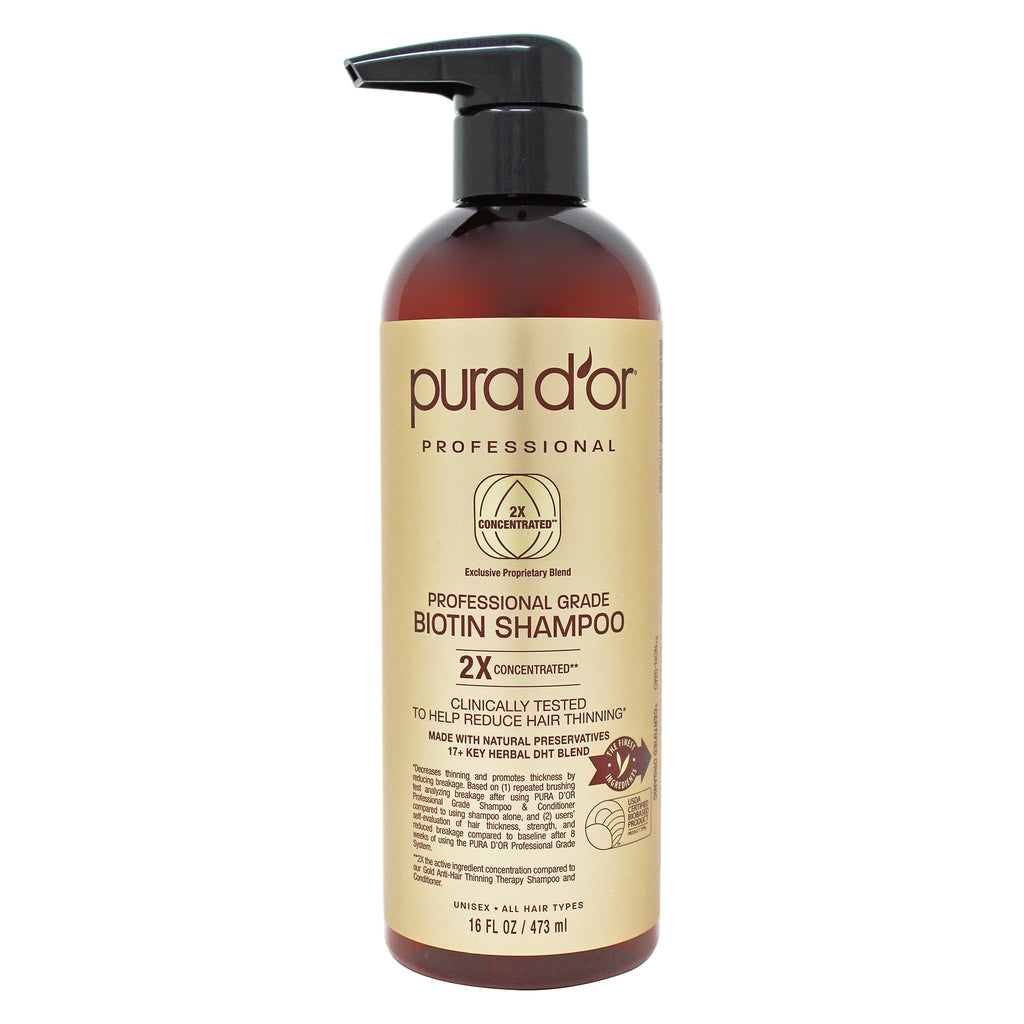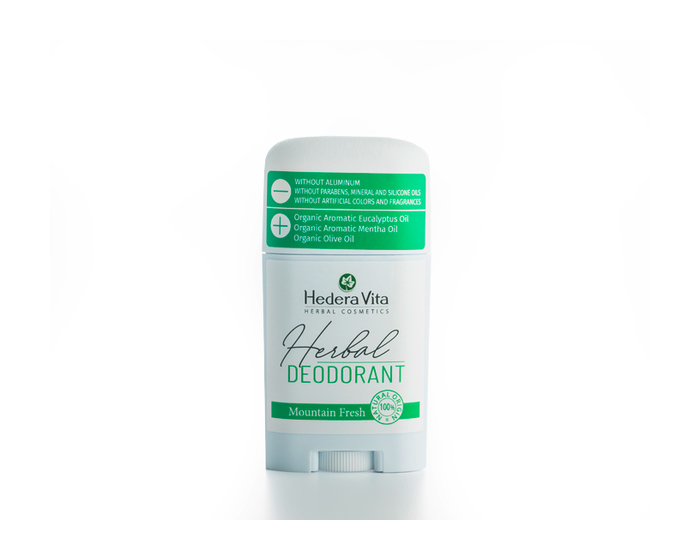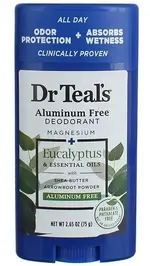Is anyone informed about chemicals that are found in products like soap, shampoo, shaving foam and other agents placed on the skin? I have heard that there are lots of chemicals in these that enter your system through the skin, and that this should be avoided.
For a very long time I've not used shampoo, which was likely as when I was about 16 I found that the standard normie shampoos are too full of junk. So I began washing my hair with soap. I didn't think much of this until earlier this year, when, for no reason at all I bought some shampoo. This was at the same time I started the Bryan Johnson blueprint diet and supplement routine. This has something in it that improves hair quality. So I attributed the improvement in my hair to whatever that supplement was - I forget the name. But I later realised it was actually the shampoo that was leaving my hair shiner and healthier. Since I've tried several different shampoos, and the best is pura d'or - Professional Grade Shampoo:

PURA D’OR maximum strength system features 17+ key active ingredients in a premium organic Aloe Vera based formula, clinically tested to help combat hair loss due to breakage.* This professional grade system was developed with an exclusive proprietary blend to fortify thinning hair and provide maximum hydration for stronger, healthier-looking strands, with increased volume and shine.
Ingredients:
This does not include Sodium laureth sulfate (SELS), which I have long heard about as something to avoid that is in most globo-cosmetic products. The above shampoo is said to be something that promotes a natural and healthy oil environment in the scalp, while SELS is said to abrasively remove natural oils from the scalp. Apparently this can create a situation where the scalp overproduces natural oils.
But I see this product has a lot of chemical sounding things at the beginning. I don't know what to make of these, but it seems these products aren't very good without something like this.
Another good one I tried that is more expensive is Patricks SH1 shampoo:
For deoderant, I tried buying a few products from Etsy that were home made from natural ingredients. But all of them were very poor, essentially melting into a not very usable blob. I've found two that appear to be very clean.
1. Ben & Anna - https://en.ben-anna.de/collections/deopflege

Ingredients:
2. Hedera Vita (made is Serbia) - https://www.hederavita.rs/en/body-c...llection/herbal-deodorant-mountain-fresh-40gr

Ingredients:
For a very long time I've not used shampoo, which was likely as when I was about 16 I found that the standard normie shampoos are too full of junk. So I began washing my hair with soap. I didn't think much of this until earlier this year, when, for no reason at all I bought some shampoo. This was at the same time I started the Bryan Johnson blueprint diet and supplement routine. This has something in it that improves hair quality. So I attributed the improvement in my hair to whatever that supplement was - I forget the name. But I later realised it was actually the shampoo that was leaving my hair shiner and healthier. Since I've tried several different shampoos, and the best is pura d'or - Professional Grade Shampoo:

PURA D’OR maximum strength system features 17+ key active ingredients in a premium organic Aloe Vera based formula, clinically tested to help combat hair loss due to breakage.* This professional grade system was developed with an exclusive proprietary blend to fortify thinning hair and provide maximum hydration for stronger, healthier-looking strands, with increased volume and shine.
Ingredients:
Decolorized Aloe Barbadensis (Aloe Vera) Leaf Juice*, Sodium Laurylglucosides Hydroxypropylsulfonate, Hydroxypropyl Bis-Hydroxyethyldimonium Chloride, Cocamidopropyl Hydroxysultaine, Sodium Cocoamphoacetate, Polyquaternium-73, Cocamide Mipa, Melaleuca Alternifolia (Tea Tree) Leaf Oil*, Argania Spinosa (Argan) Kernel Oil*, Biotin (Vitamin H), Nigella Sativa (Black Cumin) Seed Oil, Cymbopogon Flexuosus (Lemongrass) Oil*, Emblica Officinalis (Amla) Oil*, Grateloupia Elliptica (Red Korean Seaweed) Extract, Urtica Dioica (Nettle) Leaf Extract, Serenoa Serrulata (Saw Palmetto) Extract, Cedrus Atlantica (Cedarwood) Bark Oil*, Rosmarinus Officinalis (Rosemary) Leaf Oil*, Salvia Sclarea (Clary Sage) Oil*, Polygonum Multiflorum (He Shou Wu) Root Extract, Citrus Limon (Lemon) Peel Oil*, Citrus Grandis (Grapefruit) Seed Extract*, Hibiscus Sabdariffa (Hibiscus) Flower Extract, Niacin, Cucurbita Pepo (Pumpkin) Seed Oil, Pygeum Africanum Extract, Zinc Gluconate, Tocopherol (Vitamin E), Soy Isoflavones**, Beta-Sitosterol, Camellia Sinensis (Green Tea) Leaf Extract, Xylityl Sesquicaprylate, Lactobacillus Ferment, Salix Nigra (Willow) Bark Extract, Citric Acid.
*Certified Organic Ingredient
**Non-GMO
This does not include Sodium laureth sulfate (SELS), which I have long heard about as something to avoid that is in most globo-cosmetic products. The above shampoo is said to be something that promotes a natural and healthy oil environment in the scalp, while SELS is said to abrasively remove natural oils from the scalp. Apparently this can create a situation where the scalp overproduces natural oils.
But I see this product has a lot of chemical sounding things at the beginning. I don't know what to make of these, but it seems these products aren't very good without something like this.
Another good one I tried that is more expensive is Patricks SH1 shampoo:
For deoderant, I tried buying a few products from Etsy that were home made from natural ingredients. But all of them were very poor, essentially melting into a not very usable blob. I've found two that appear to be very clean.
1. Ben & Anna - https://en.ben-anna.de/collections/deopflege

Ingredients:
Sodium Bicarbonate, Butyrospermum Parkii Butter*, Maranta Arundinacea Root Powder*, Zea Mays Starch, Cocos Nucifera Oil*, Helianthus Annuus Seed Oil*, Cetyl Alcohol, Stearyl Alcohol, Coco-Caprylate/Caprate, Helianthus Annuus Seed Cera, Ricinus Communis Seed Oil, Shorea Robusta Resin, Rhus Verniciflua Peel Cera, Caprylic/Capric Triglyceride, Limonene**, Rhus Succedanea Fruit Cera, Citrus Limon Fruit Oil, Citrus Aurantium Bergamia Fruit Oil, Citrus Reticulata Peel Oil, Tocopherol, Linalool**, Ascorbyl Palmitate, Citral**, Cymbopogon Schoenanthus Oil, Simmondsia Chinensis Seed Oil*, Geraniol**, Daucus Carota Sativa Root Extract*, Rosmarinus Officinalis Leaf Extract*
* Biological ** of aroma oils *** RSPO - certified
2. Hedera Vita (made is Serbia) - https://www.hederavita.rs/en/body-c...llection/herbal-deodorant-mountain-fresh-40gr

Ingredients:
Olive Glycerides, Cera Alba (Beeswax), Sodium Bicarbonate, Palmitic/Stearic Triglyceride, Olea Europaea (Olive) Oil, Bambusa Arundinacea Stem Powder (mleveni bambus), Menta Piperita (Peppermint) Oil, Eucalyptus Globulus Oil.

